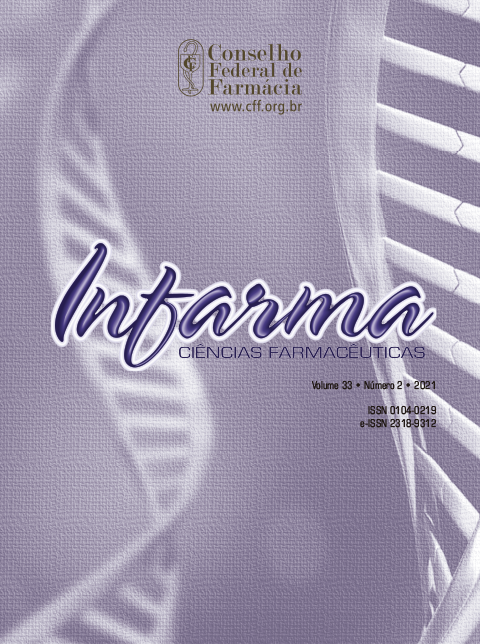MECHANISM OF ACTION AND ADVERSE REACTIONS OF ANTIVIRALS RECOMMENDED FOR HEPATITIS C IN BRAZIL
DOI:
https://doi.org/10.14450/2318-9312.v33.e2.a2021.pp149-157Keywords:
Hepatitis C, pangenotypic drugs, antiviral drugs.Abstract
Hepatitis C is a disease that affects the entire world population, also affecting the population’s quality of life. The use of medications is fundamental for the therapeutic process of patients with hepatitis C. The treatment of hepatitis C faced several obstacles with the viral pangenotypic diversity and the adverse treatment reactions faced by those infected with the vírus. However, over the years, the evolution of the pharmaceutical market and antiviral drugs has occurred in several research fields against hepatitis C. In this context, it is important to understand the mechanisms of action and adverse reactions of the drugs used to treat hepatitis C in Brazil. The research is a bibliographic review, through a survey of scientific articles in the databases LILACs, Pubmed, Google Acadêmico, and SciELO, ordinances, and bulletins from the Ministry of Health. Molecular improvements of the drugs aim to decrease the treatment time, thus increasing patient compliance because these new drugs have mild adverse effects. Concerning the treatment of hepatitis C, the pharmaceutical industry trend is to produce pangenotypic drugs, that is, that act in all HCV genotypes.
Downloads
Published
How to Cite
Issue
Section
License
Authors who publish in this journal agree to the following terms:
- Authors retain the copyright and grant the journal the right of first publication, with the work simultaneously licensed under the Licença Creative Commons Attribution which allows the sharing of work with acknowledgment of authorship and initial publication in this journal.
- Authors are authorized to take additional contracts separately, for non-exclusive distribution of the version of the work published in this journal (e.g. publish in institutional repository or as a book chapter), with acknowledgment of authorship and initial publication in this journal.
- Authors are allowed and encouraged to publish and distribute their work online (e.g. in institutional repositories or on their personal page) at any point before or during the editorial process, as this can generate productive changes as well as increase the impact and Citation of published work (See O Efeito do Acesso Livre ).


